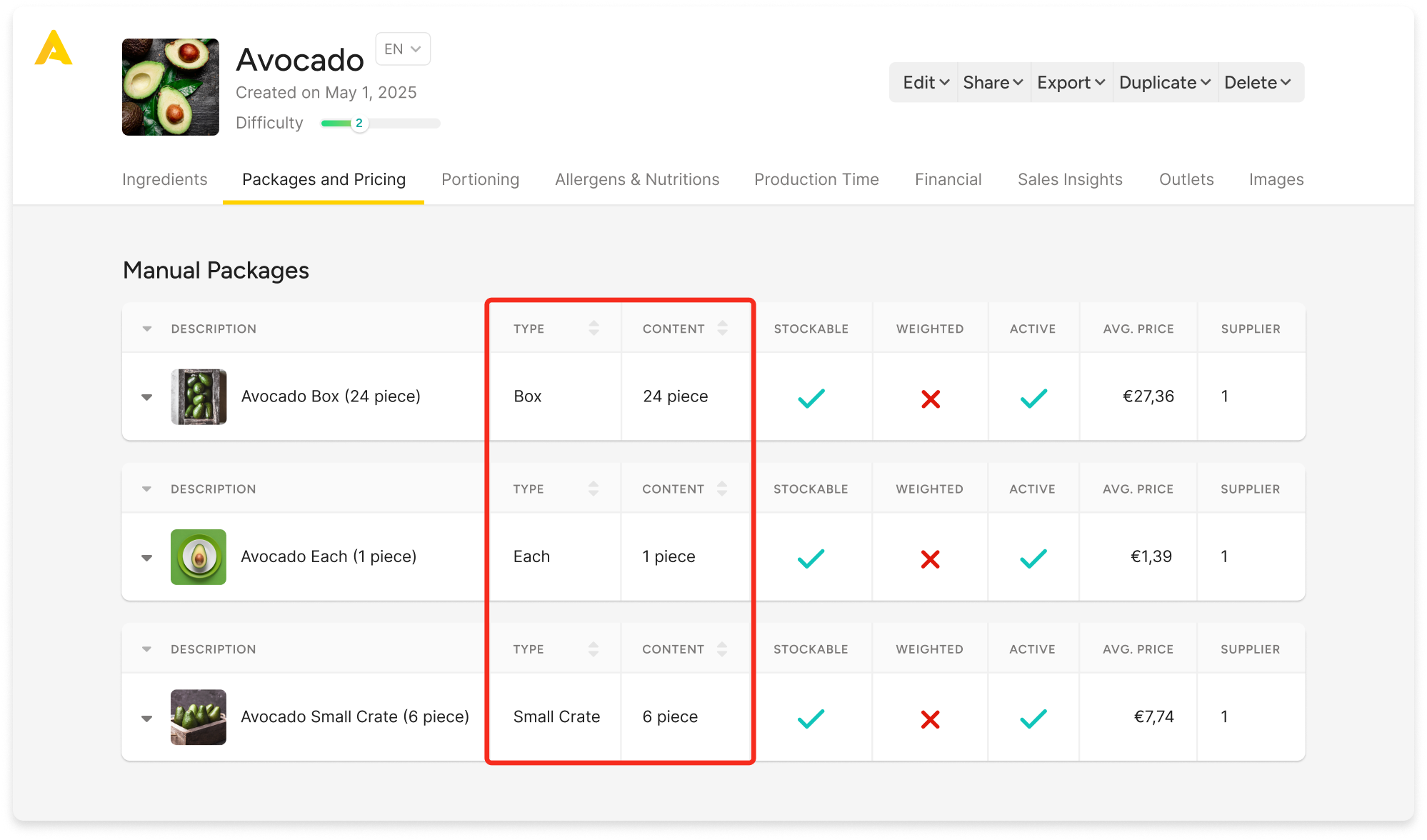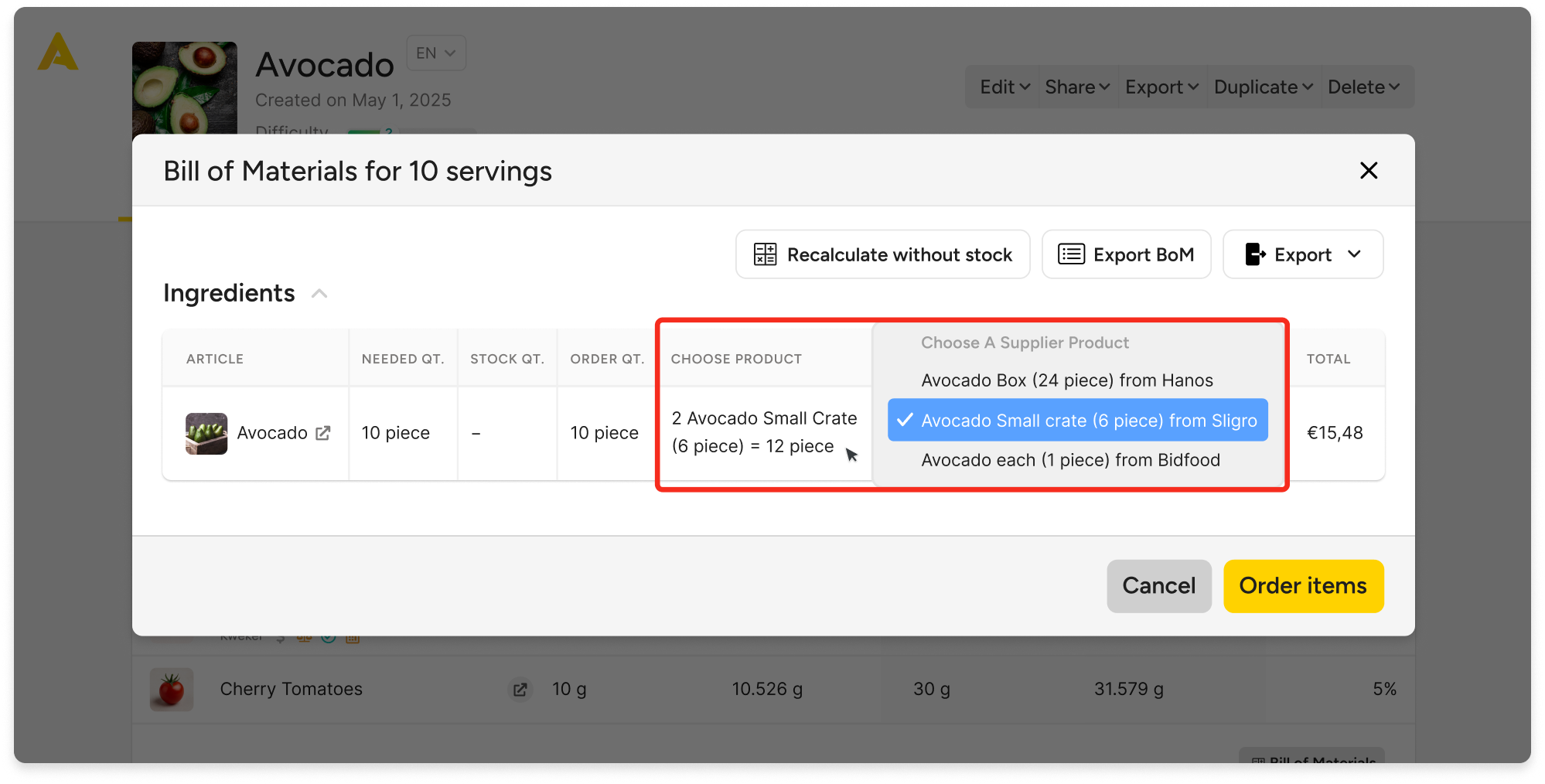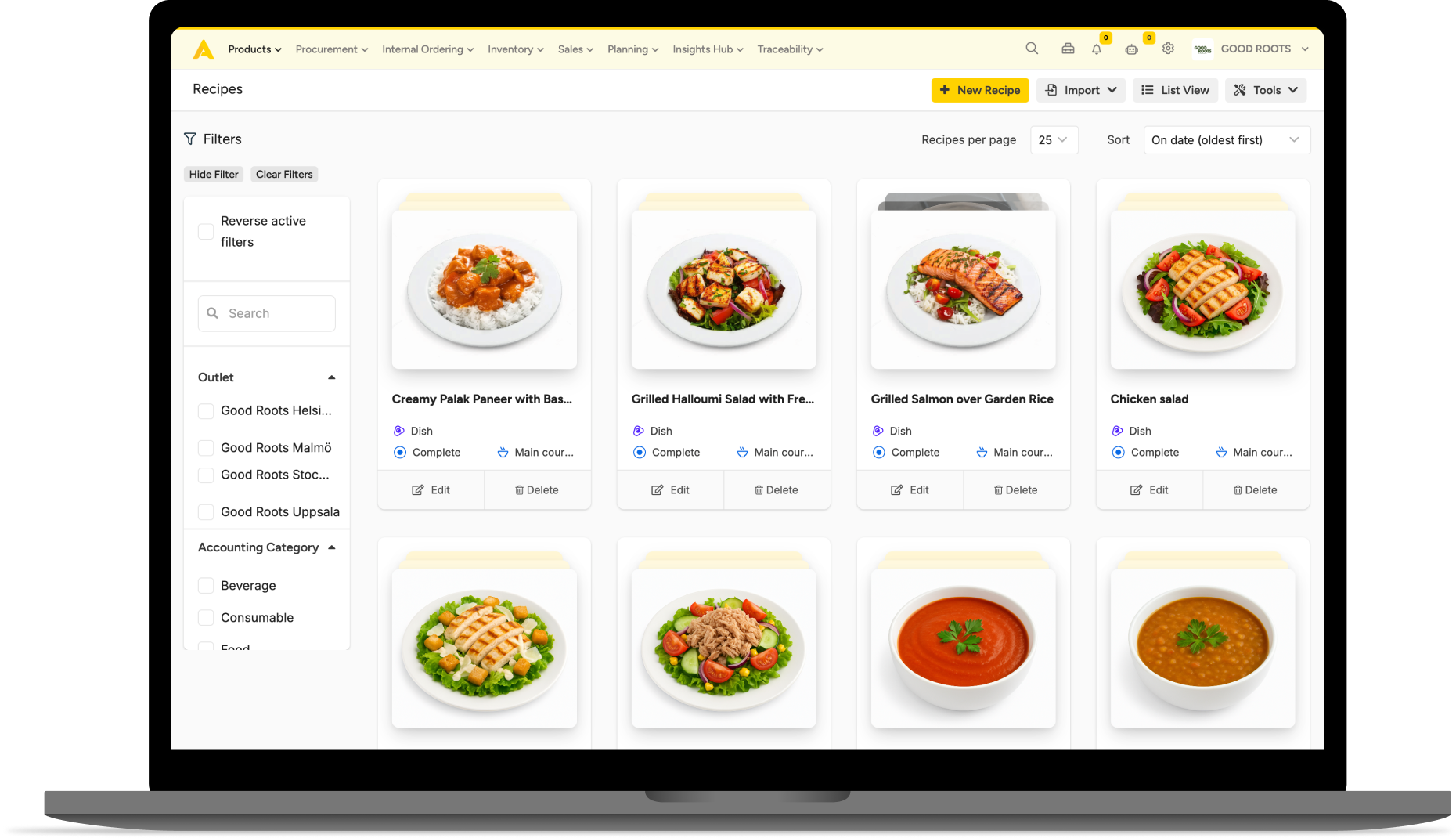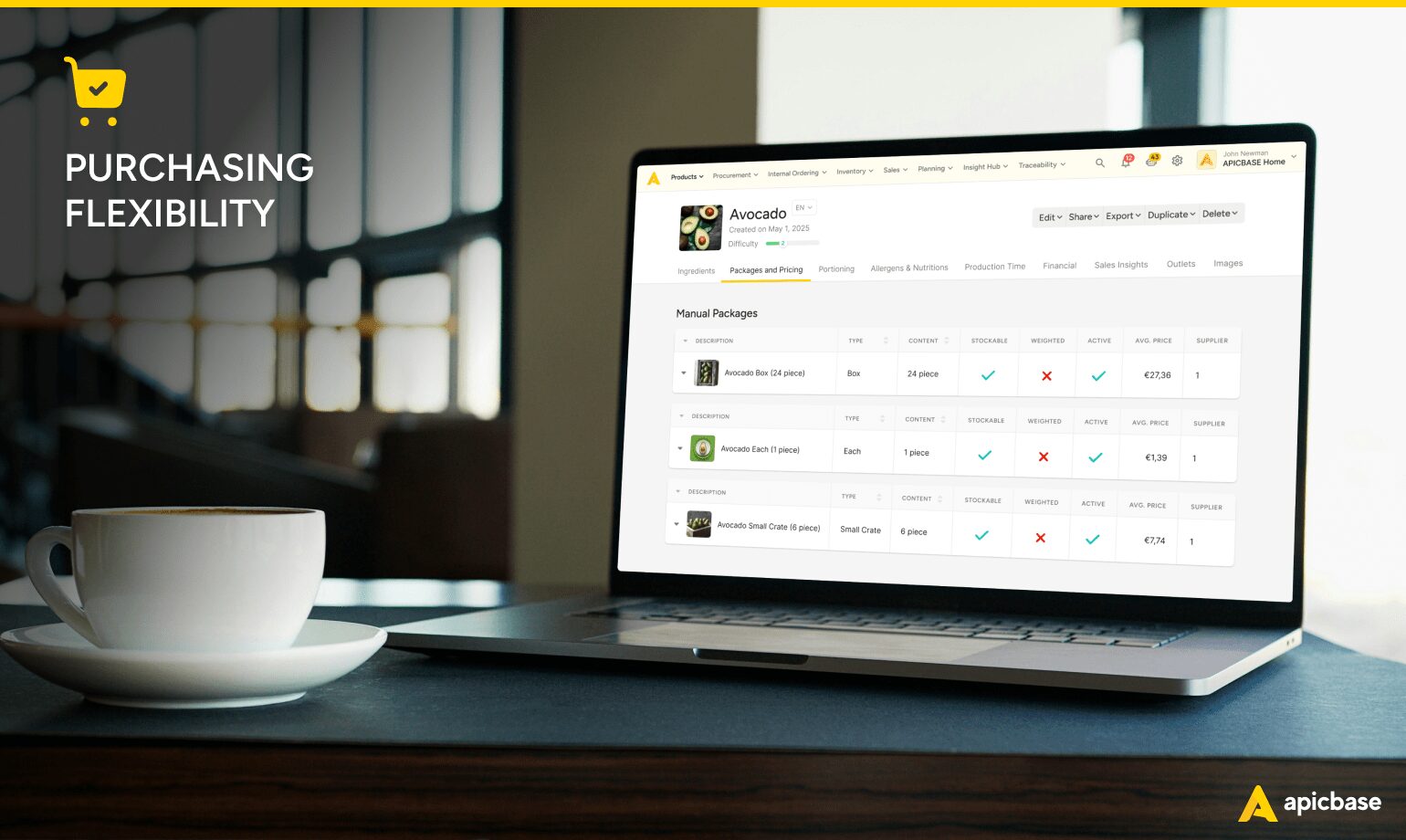Some of the best features in Apicbase are so foundational that we almost forget how rare they are elsewhere.
Take this one:
You can link multiple suppliers and pack sizes to a single ingredient.
Whether it’s a box, a kilo, or just a few pieces, your team picks whatever fits best when placing the order.
A few weeks ago, I was working with Dan, Head of Ops at a 37-site café group. As we mapped out his procurement process, he told me:
“Our old system wouldn’t let us order avocados by the piece, only by the box. Not every site needs a full box. I want to order what we actually need, not what the system forces.”
That lack of flexibility was costing them in spoiled stock, last-minute corner-shop runs, and data they couldn’t rely on.
So I showed him how Apicbase does it differently.
The Problem: One Size Fits None
Take the avocado example. It’s a staple at Dan’s sites.
- Site A, a quiet neighbourhood café, needs about 8 avocados per order.
- Site B, a busy commuter spot, goes through 30.
Their main supplier sells boxes of 24. Their old procurement software only allowed one ordering option per ingredient. So every site had to order a full box.
Another approved supplier offered 6-packs, but there was no way to choose the smaller pack in the system.
So site managers worked around it.
They had three choices:
- Order a box of 24 through the system and throw half away.
- Phone in 6-packs manually
- Dash to the corner shop at double the cost.
It messed up the reports. Inventory was off, CoGS variance made no sense, and waste was embarrassingly high at certain sites.
The Fix: One Ingredient, All the Options
This is where Apicbase is different.
The system doesn’t force a one-size-fits-all setup. Instead, you create one ingredient, and nest all the available supplier and packaging options under it.

Think of nesting like this:
You’ve got a master ingredient that’s how chefs think: “just avocados.” Then you’ve got all the purchasing options. That’s how procurement sees it: avocados in boxes, 6-packs or by the kilo, from multiple suppliers.
It’s like a folder. The ingredient is the folder. Inside it, you’ve got all the ways it can be bought and from whom. Each team select what fits from a simple dropdown menu.
Apicbase handles the rest.

For example:
Site A needs 8 avocados, they pick:
- 2 × 6-packs from Supplier B (12 avocados), or
- 1 × 6-pack + 2 individual pieces from Supplier C (exactly 8)
Site B needs 30. They go with:
- 1 × 24-pack from Supplier A + 1 × 6-pack from Supplier B
Everything flows through Apicbase:
- Purchase orders are logged
- Stock levels stay accurate
- Reports reflect reality
Ultimate Flexibility
With Apicbase, Dan’s teams can:
- Order the right amount for each site
- Choose the best supplier and pack size
- Avoid phone orders and corner shop runs
- Keep inventory and purchasing data complete and reliable
Instead of forcing one-size-fits-all orders, each café now orders what it needs and Apicbase captures every decision.
That means:
- Less waste
- Lower costs
- Low CoGS variance
- Clear oversight across all locations
Or, like Dan said it: “We just needed a system that didn’t get in the way.”

Bring Ordering in Line with How Your Kitchens Actually Work
We’ll look at your current setup and show you how Apicbase can bridge the gaps.



